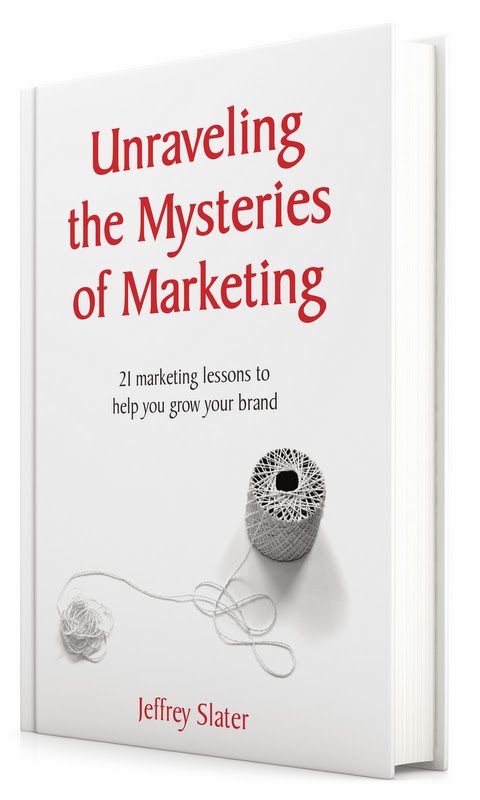I listen to marketing blogs while I walk on the weekends. It is a source of ideas, information and insights. Mark W. Schafer’s podcast called The Marketing Companion has been a frequent friend during on my strolls. Mark writes the popular blog GROW and has written several wonderful books I have reviewed here like Tao of Twitter and Return on Influence.
Mark said, “Trust is the Ultimate Currency”.
He was talking about it in the context of what would happen if he started to cheapen his blogs and podcasts by crassly turning them into infomercials. He talked about how some companies are really starting to understand that without trust, you just can’t achieve value, effectiveness and lasting business value. He used IBM as an example of folks who are really getting it. And he disclosed he has done work for them over the last few years.
Drying Out
I had to replace a Sear’s Kenmore Drier that died on us this week. (RIP Kenmore, Sears and my drier). When I got the news from the repairman, my first thought was who do I trust? I have ZERO relationship with Sears anymore. Not only don’t I trust them but I have no idea what they do anymore. I can’t recall any message, marketing or communications that spoke to me. It has been more than a decade since I went into their store. (At that time, I bought a drier).
I do trust Best Buy. I have purchased from them my Dyson vacuum cleaner, my new HP Photosmart wireless printer and my new LG flat screen 42 inch TV. I like that I could quickly, on my phone find the pricing range so I could quickly decide if I want to spend $425 to fix the old unit. (No!). I could see the product offerings on my phone. I could learn that they could deliver FREE in 3 days and I could see brands I trusted.
At lunchtime I drove over to Best Buy and met with their sales person. Michael walked me through my choices and answered all my questions. He checked inventory and if I had discount credits from their loyalty program to offset the cost. Within 30 minutes I had all the information I needed and could email the two choices to my wife for a quick conference. We agreed and I am the proud owner of an LG Drier.
Why LG?
 It fit in my price range. It had the widest opening format we preferred. It had comparable features to what we had plus a significant energy score improvement.
It fit in my price range. It had the widest opening format we preferred. It had comparable features to what we had plus a significant energy score improvement. But it didn’t occur to me until later that I really trust LG. My LG TV works really well, set up easily and fulfilled their brand promise. I use an LG product everyday for enjoyment, entertainment and relaxation. It’s design fit my aesthetic. It conveniently puts the electronics and information panel (formerly dials) right in front instead of far back on a rear panel. This feature made it even easier to use then the old one. Overall, I liked the design and how they thought about the consumer uses a drier.
So I trusted LG and I trusted Best Buy. I bought my new drier with trust as my currency.
How are you building trust with current and prospective customers in your business? Are you keeping your promise to them? Is your product easy to use and designed to fit the consumer’s needs?
~~~~~~~~~~~~~~~~~~~~~~~~
Have you purchased your copy of my book? 21 lessons for those who are trying to unraveling the mysteries of marketing. Available exclusively on Amazon.






Jeffrey- this is an interesting post in that you talk about products in the context of trustworthy companies. It seems that your definition of trust revolves primarily around customer experience, not the trustworthiness of the organization itself.
I recently conducted a workshop on trust in which we discussed the difference between trusting a brand and trusting a company. For example, many in the audience said they trusted Apple, but what they meant was they trusted their products to perform as advertised. They didn’t know whether the company, as a corporate entity, is trustworthy.
I think there is a distinction to be made. How about you?
Barbara, You raise a great point. You can trust a brand to live up to its promise but not trust a brand. I am so disappointed in GM and what they did by not informing consumers of a problem they were aware of that could cause serious injury and death. (key ignition issue). I am not going to be in a trusting mood when I go buy a new car. I recently heard about a study from a friend of mine where the product and the company were analyzed on trust issues among others. In some cases, in this industry, companies were trust more than brands and vice versa. It is fertile ground to study.
I guess the big issue for me is trusting the promise of a brand/product/service to deliver what they say. When airline or banks talk about how much they love me as a customer and I am so important, yet they make customer service PAINFUL, I don’t trust what they say. Actions build trust. Advertising, marketing and other selling activities communicate intent. But it always comes down to what a company does; how they behave in the marketplace.
Thanks for your comment.
Jeffrey,
You and I talked a little bit in Mark Shafer’s blog recently about trust. And as you invited me to visit your blog, I thankfully accepted your invitation.
I’d like to ask you a question please, it’s interesting to know your opinion.
What can you say about the thought that trust is an example of belief? Or even more radically, trust is a form of justification of our actions?
I mean that any people need to believe in something (even nihilists “believe” in their system of thoughts). Believing in something makes a human life much easier (or even possible at all).
People need to have some existential basis or foundation to resolve for themselves the question why they exist and how to exist.
And thus, trust is a great pillar in the relationships not only between people, but between people and companies or brands as well. But in its essence, trust may be just a form of justification of thinking and doing this or that way.
So, what do you think about that?
P.S.: the aim of my question is not to prove anything, but just to try to dig deeper as a mental exercise.
Regards,
Michael
Michael,
Thanks for joining the conversation on MomentSlater. You asked some deep and penetrating questions.
I have a rather simple view of the idea of trust. Trust comes from reliability, consistency and authenticity. Whether it is in a relationship with a person or to a brand.
Trust is a bit of a journey and is earned over long periods of time through consistent behavior and through actions.
Brands try to gain trust but so often screw it up by taking short cuts like GM and Toyota recently did with their customers. Why should I trust what they say in their marketing when behind closed doors they act so differently. I don’t trust BP and it will take a long time for me to gain their trust.
So trust is earned through actions not words and absolutely not from marketing campaigns.
Thanks for your thoughtful comments and questions. And for trusting me with your questions.
Jeffrey, thanks for your reply. It makes a perfect sense. I find it practical and not overcomplicated.